The Pillars of the Earth involves building a Cathedral…
…based on the best-selling novel by Ken Follett.
At the beginning of the 13th century, construction of the greatest and most beautiful cathedral in England begins. Players are builders who try to contribute the most to this cathedral’s construction and, in so doing, score the most victory points.
The Pillars of the Earth is a game where you actually convert resources to victory points directly, rather than going through the rigmarole of doing something else. It’s also a worker placement game but like no other one I’ve played in a way.
Firstly, in turn order, you draft Resource/Craftsmen cards from a selection available. You by craftsmen with gold and resources with worker meeples.
Turn Order
Then the start player pulls a Master Builder from a bag. Each player has 3 and they are pulled out one at a time.
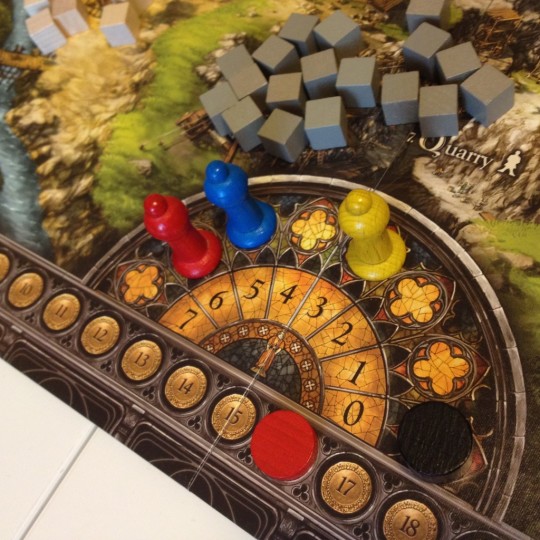
If you’re pulled out first you are placed in the 7 space. You then have the option to leave your token there, or pay 7 gold to place it on an action space on the board early. The next one pulled out has the same choice for 6, then 5 etc Once the option is 0 they are placed on action spaces on the board in that order without cost.
Then you go back to the 7 space and continue around this dial placing them on the board without cost.
I LOVED this… Sometimes you didn’t need or want to pay to take a space early but sometimes it was worth the cost…
Event
Once all the Master Builders are on the board, the Event card for the round is flipped up. These are good or bad and affect all players. Then you resolve action spaces with the first action space on the board being the Archbishop’s Office which allows you to ignore this effect if you want… handy 🙂
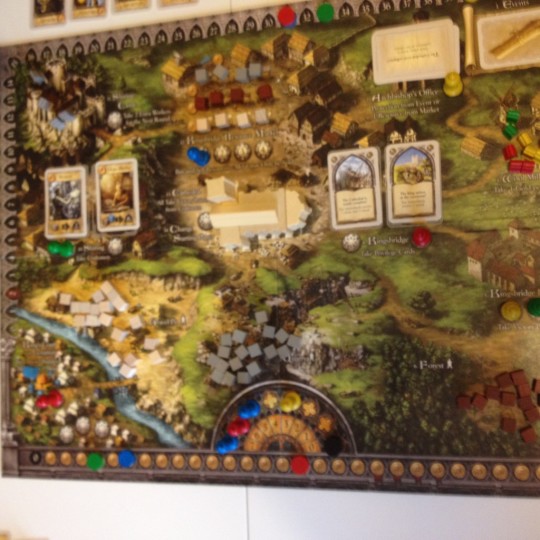
Then the Wool Mill where you get 1 money for each worker you didn’t use getting the cards earlier.
Knightsbridge lets you gain an action card that has various effects such as gaining points, money, resources and other cool things.
Kingsbridge Priory lets you get 1 or 2 victory points.
Then you gather the resources up for the cards you have bought earlier from the Quarry, Forest and Gravel Pit.
In the King’s Court, the start player rolls a die and players have to pay a tax equal to the number rolled. If you took an action on this space you ignore this tax.
The Shiring spot lets you take one of the Craftsmen available in these spaces. These are the same as the ones you could buy earlier but you get them for free.
Shiring Castles gives you 2 generic workers for the next round.
Kingsbridge Resources Market lets you buy and sell resources.
Then you score points from your craftsmen…
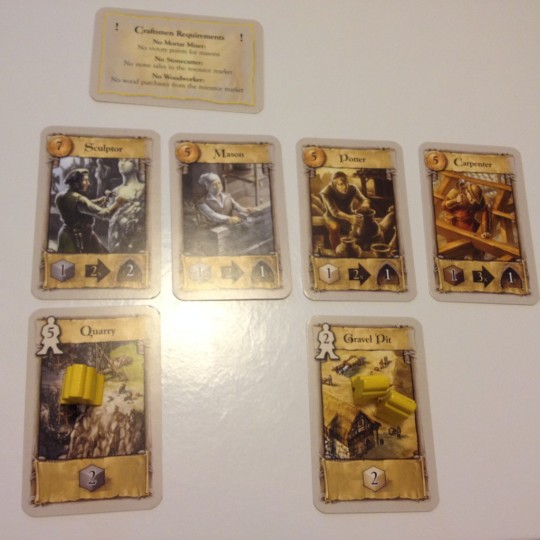
The Pillars of the Earth Summary
This is simply ‘Trade a resource of a certain type, for a certain number of points a certain number of times. The craftsmen you buy later in the game give you a better conversion rate on points for the number of resources.
The last space available lets you be the start player for the next round.
At the end of the round, a part of the cathedral is built. When the Cathedral is built the game ends… I mean REALLY when the Cathedral is built…
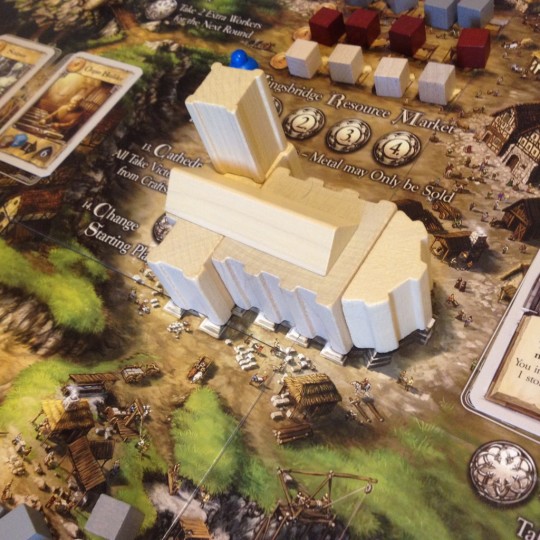
I really enjoyed The Pillars of the Earth. It’s pretty basic as far as a game goes but what it does it does well. Someone at the table said it felt like Stone Age and I see that. It’s not too heavy but heavy enough.
I do have a feeling that maybe 3-4 plays will be enough though. There are expansions and I don’t know if they add a player power or something to make the game different each play… Hopefully, they do something.
But, for now, I highly recommend this one.
Jesta ThaRogue
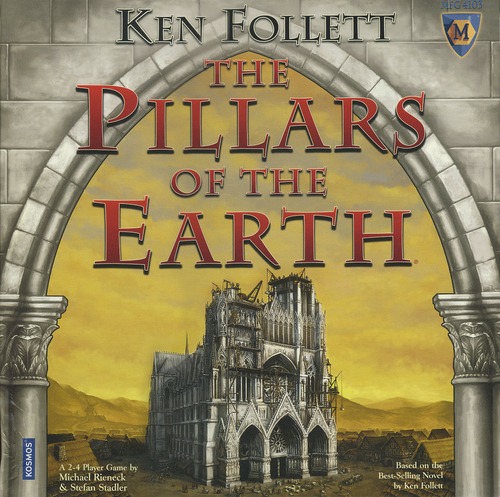


Leave a Reply